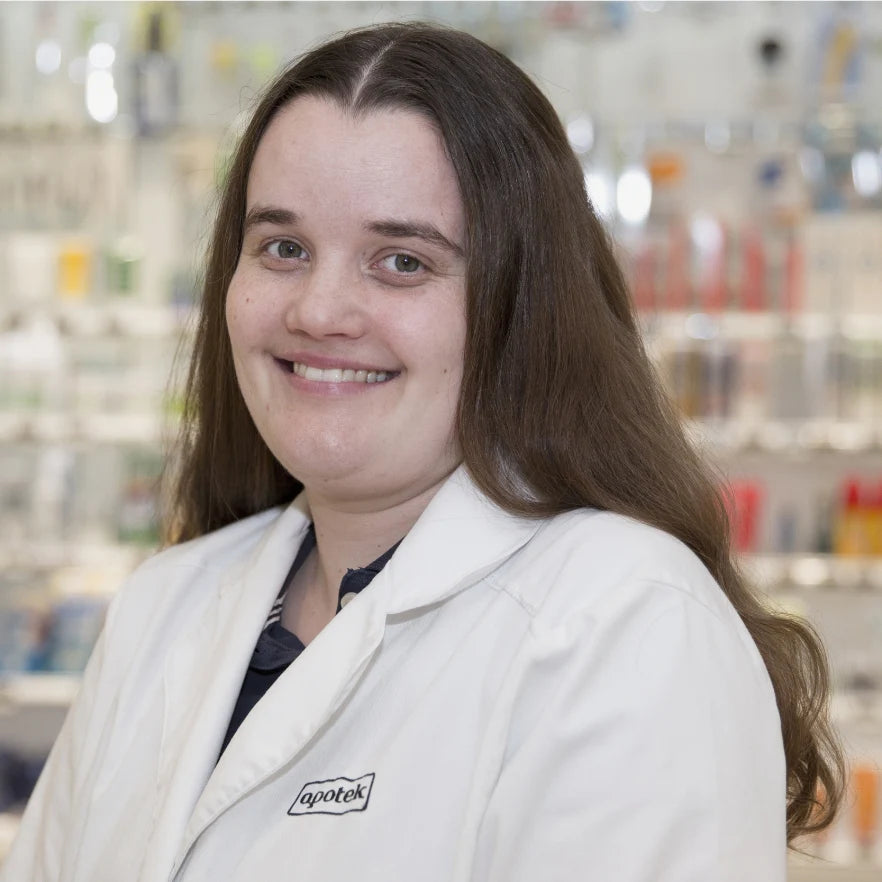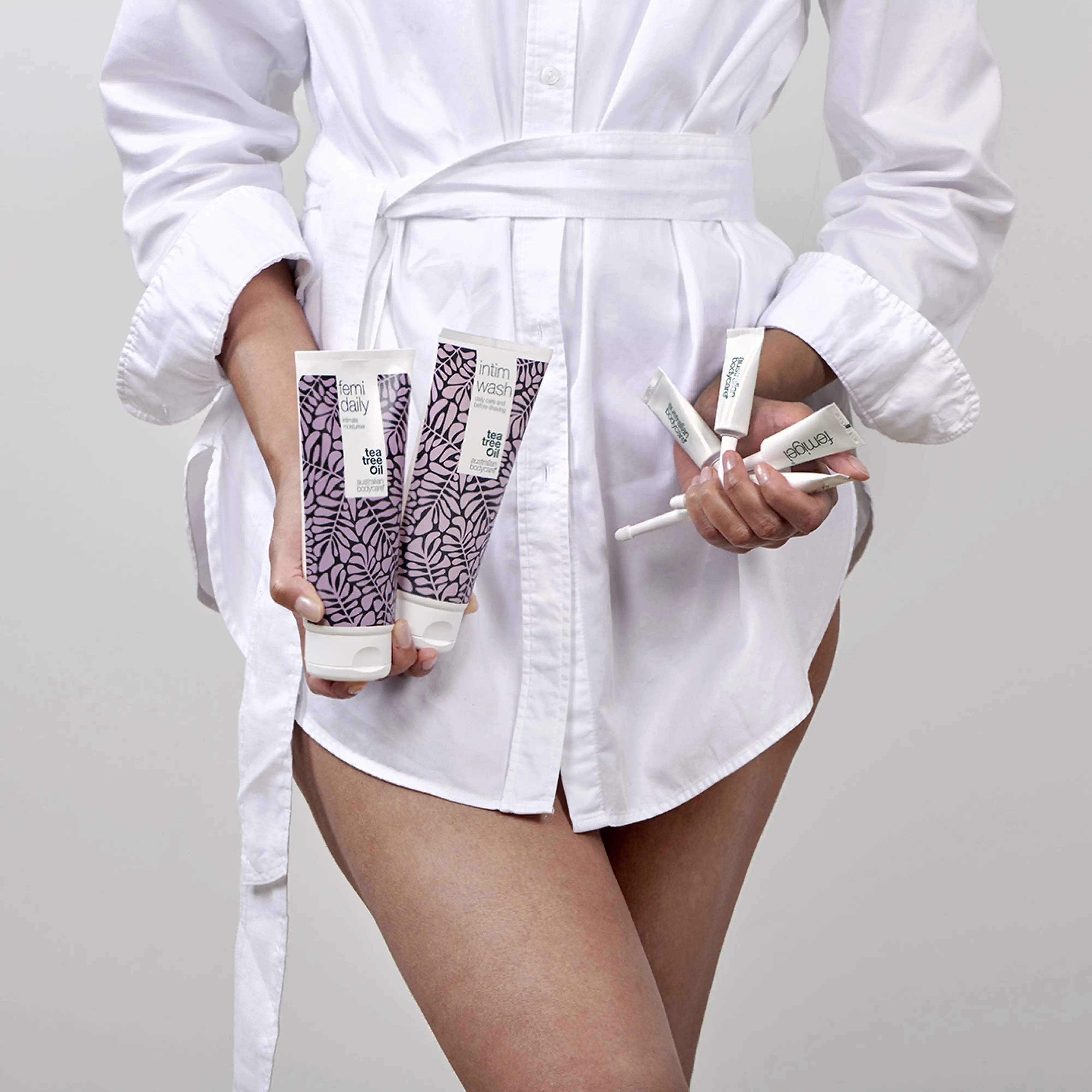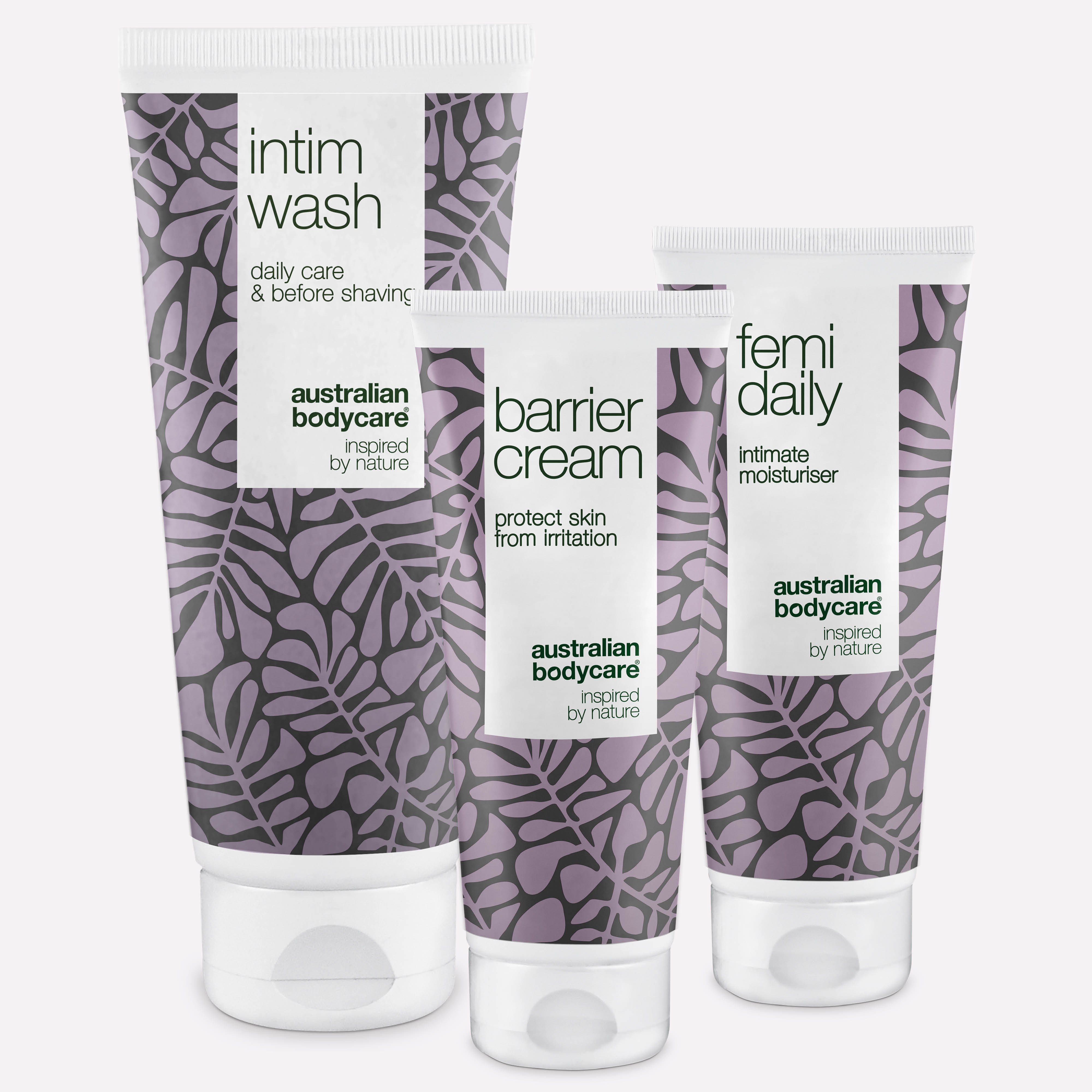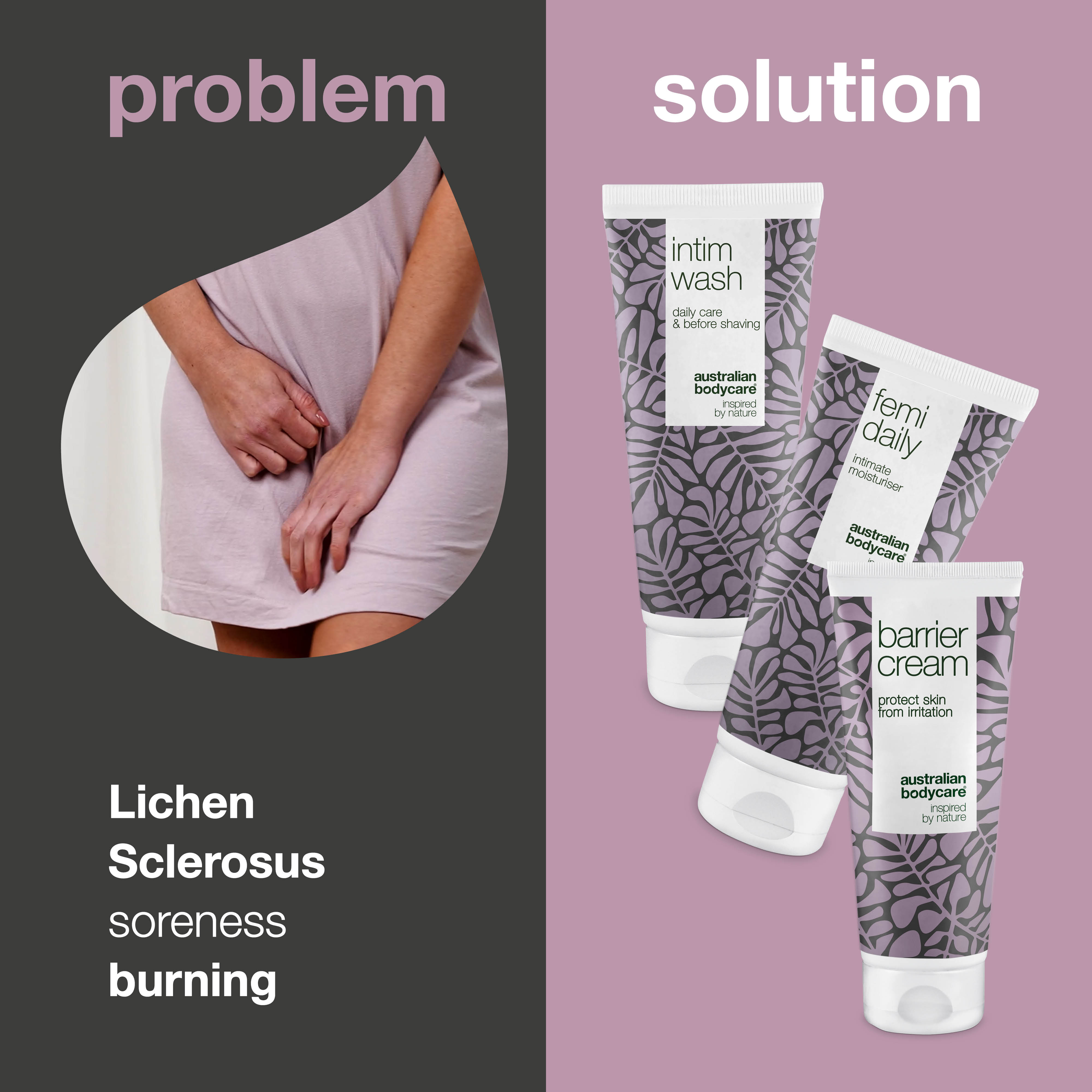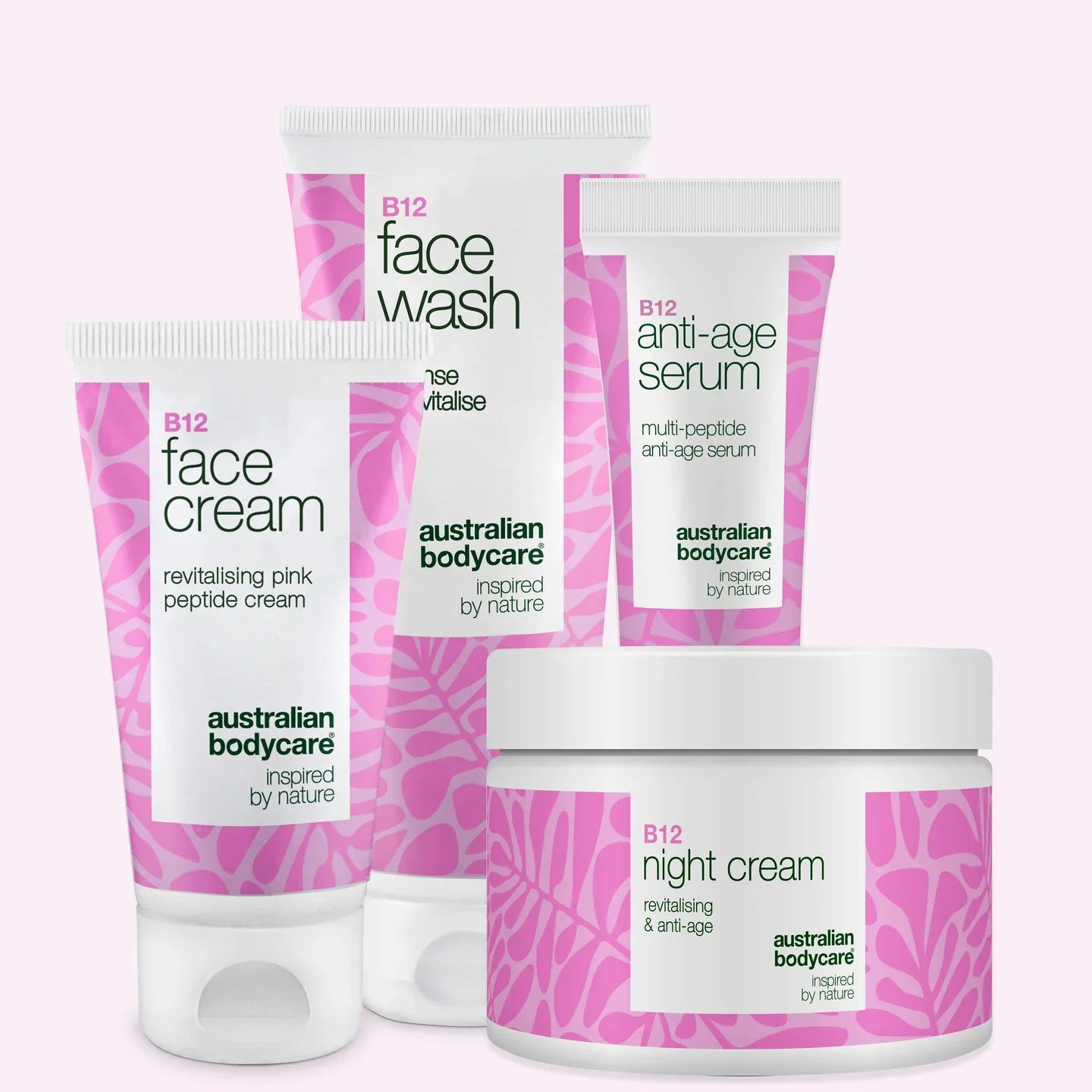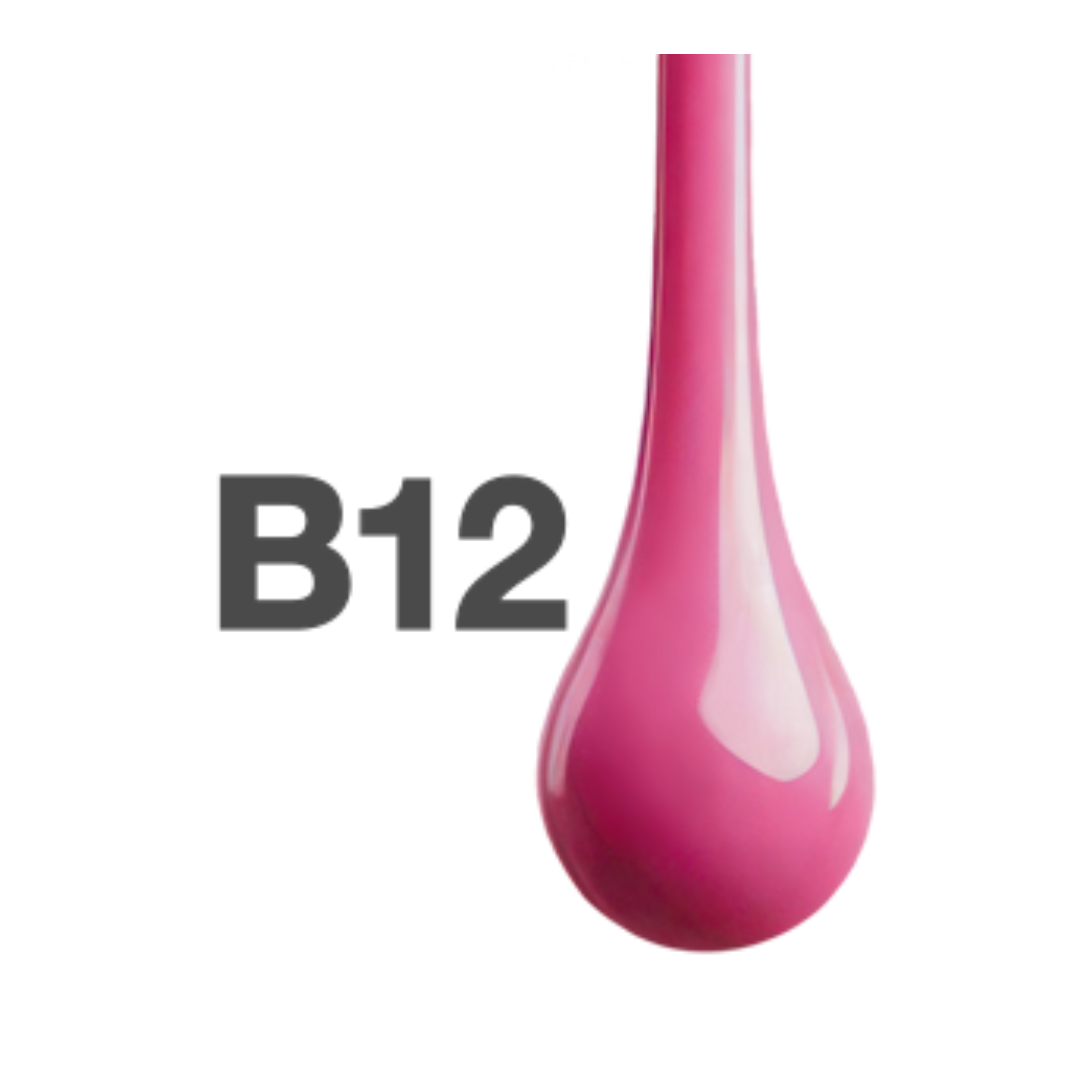Lichen sclerosus – the best way to look after yourself
If you suffer from lichen sclerosus, it can impair your general wellbeing. Do you suspect you have it? Here you can learn a lot about what kind of condition it is, how it appears, and how to care for and treat the affected area.
Table of contents
What is Lichen sclerosus?
Lichen sclerosus is a rare skin disease that causes changes in the skin around the anus and genitals. It is an autoimmune condition, which means that your immune system is attacking your body.
This skin disease lasts (in most cases) the rest of your life, and therefore cannot be cured, but only treated. Lichen sclerosus has no popular name, but is sometimes abbreviated to LS.
Who is normally affected by lichen sclerosus?
In principle, anyone can suffer from lichen sclerosus – including men and children (usually girls). However, it is typically women who suffer from lichen sclerosus during and after the menopause.
Only about 10 % of patients with this disease are children or young people.
It is not known precisely how many have the disease.
What is the prognosis for lichen sclerosus?
As a starting point, lichen sclerosus is not dangerous, and is not passed on during sex or by contact. It can in rare cases develop into skin cancer or cancer of the mucous membranes – although this happens in fewer than 5 %.
It is important to diagnose Lichen sclerosus as early as possible for the best treatment and prognosis. That is also why patients with lichen sclerosus are offered annual check-ups with their doctor to catch undiscovered cancer.
If children have the disease, it is often milder and less troublesome than in adults. Many even grow out of it again.
How do you get lichen sclerosus?
There is no clear reason why some people get lichen sclerosus. In some families it appears that the disease is related to other autoimmune diseases – for example metabolic diseases.
It is caused by an “error” in the immune response, which then produces antibodies against some of the body’s own tissues.
What are the symptoms of lichen sclerosus?
Lichen sclerosus often appears as patchy white changes in the skin around the anus and genitals.
These skin changes itch and are tender. After some time, the skin may become whiter, thinner, and wrinkled. It means that intercourse may be painful.
The changes in the skin may also mean that the tissue shrinks, and the vagina may be constricted – but the disease does not spread to the vagina itself. Some patients also have patches of thicker skin, and the colour changes from white to grey.
Serious itching is the most common symptom of the disease – and it may be so intense that it disturbs sleep at night. The itch is accompanied by a burning or stinging sensation, and scratching may injure the skin in the affected area.
If the skin around the anus is affected, you risk having problems with constipation or passing stools, partly because it is painful, and partly because the anus may be constricted.
If you have symptoms of incontinence, it is important to use incontinence pads and not sanitary towels, as ordinary sanitary towels will cause a tight and enclosed environment in the affected area.
How can lichen sclerosus be treated?
As previously mentioned, lichen sclerosus is a skin disease that requires treatment. It is a chronic disease, but can be stabilised, so that it remains in quiet phases, although it can always flare up.
Lichen sclerosus is often confused with a fungal infection. However, treatments for fungus have no effect on lichen sclerosus. If you discover changes in the skin around your anus and genitals, your doctor can take a tissue sample to make sure that the changes are due to lichen sclerosus.
There is no treatment that can cure the disease, but treatment can relieve the discomfort and prevent the disease from spreading further. That is why it is important to start early with treatment.
Treatment should:
- relieve symptoms and discomfort.
- prevent formation of scar tissue.
- prevent further changes in the skin and cells, which could progress to cancer.
You can learn more here about the different types of treatment.
Treatment with cream and oil
Treatment of lichen sclerosus may consist of an ointment with at least 70 % fat, without perfume or other allergenic substances. You can also alternate with baby oil for a change.
Use an amount about the size of a pea. Apply to the affected area at least twice a day. You should preferably alternate between different types of cream or ointment.
Treatment with medicated ointment
The disease is often treated with a powerful medicated salve, which your doctor can prescribe.
Laser treatment
Lichen sclerosus can cause scratches and cracks in the skin, which in some cases may not heal easily. It may then be beneficial to treat them with laser therapy.
A laser is a special type of concentrated light with intensified parallel rays that can penetrate deep into the skin under precise control. They increase blood circulation and stimulate individual cells, boosting their natural repair mechanisms. This helps wounds and cracks to heal better and faster.
Laser treatment is painless – for some it feels like the flick of an elastic band. The therapist continues the treatment for about ten to twenty minutes, and basically you can expect to have treatment once a week for six to eight weeks.
Like the other treatments, this treatment is not a cure, but it relieves discomfort and symptoms.
Always consult your doctor if you are in any doubt about whether the treatment is helping you.
Surgical treatment
In most cases, an operation is not necessary. It may be a possibility, however, if you have pronounced narrowing of the vagina or the anus. In that case a surgical procedure can open it up.
Once again, the treatment is intended to correct the changes, but the procedure is not a cure.
Supplementary care with gel and cream
It is always best to keep the area moisturised and nourished, so the skin is as supple as possible.
You can use Australian Bodycare’s Femi Daily, which is a gel for daily care in the intimate area. It is effective for itching, dry skin and irritation, and at the same time antibacterial.
Femi Daily is a water-based, hormone-free gel that prevents and relieves intimate discomfort. Antibacterial Tea Tree Oil keeps bacteria in check – without disturbing the natural bacterial flora in the delicate intimate area. The emollient ingredients prevent dryness and moisturise the skin all day.
Apply once or twice a day, and allow the gel to dry, before putting clothes on. Do not rinse it off.
You can supplement it with Barrier Cream, which effectively cares for sensitive skin. It protects and soothes delicate and irritated skin and, not least, it forms a protective barrier against external irritants.
Both the gel and the cream are dermatologically tested to ensure they are kind to skin – even for those with delicate skin.
5 good tips for living with lichen sclerosus
Lichen sclerosus can be difficult to live with. But by following some good advice – besides using creams and medication – you can keep the symptoms and discomfort in check.
This applies for example to:
- Diet
- Clothing
- Hygiene
- Pads and menstruation
- Leisure activities
Diet advice
These ten general points of dietary advice are even more important when you have an autoimmune disease such as lichen sclerosus. The basic dietary recommendations are:
- Eat a varied diet (not too much) – and be physically active every day
- Eat fruit and vegetables
- Eat fish
- Eat wholemeal bread etc.
- Eat lean meat and meat products
- Eat low-fat dairy products
- Cut down on saturated fats
- Cut down on salty foods
- Cut down on sugary foods
- Drink plenty of water
Advice about clothes
Make sure that your trousers and underwear are not tight. G-strings can exacerbate the problem, so avoid wearing them. Avoid nylon underwear, and instead choose models in silk or cotton. If possible, they should be seamless, so there is nothing to irritate the sensitive area.
It is also best to avoid fabric conditioners and washing agents with perfume, when you wash your underwear.
Make sure plenty of air gets to the area – and perhaps sleep without panties. This helps the healing process.
Advice about personal hygiene
If you have lichen sclerosus, you must be careful about using soap and water. Water can dry out the skin, which is not advisable when the skin is already dry and delicate.
Only wash the area with water once a day – preferably with lukewarm water.
Avoid soaking in the bathtub, wet wipes, perfume, soap and intimate shaving. Soap can irritate the skin, so skip it in your intimate hygiene. Try using oil before taking a bath as the best protection for the skin.
Advice about pads and menstruation
When your period comes, avoid pads and panty liners. You risk enclosing the area, so the intimate environment is airtight.
Use a menstruation cup instead, because it does not produce the same enclosed environment.
Advice about leisure activities
Lichen sclerosus can be extra uncomfortable if you ride, cycle or swim.
Try using a saddle specially for women. There is a cutaway, so it is hollow in the middle. You can also use a riding saddle with a gel seat saver, which must be cooled before use.
Use silicone-based lubricant as protection against chlorinated water, before you hop into the swimming pool.
